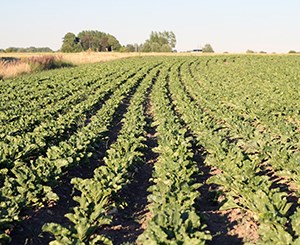Contact
mistrabiotech@slu.se
+46 (0)18 672232

The experiments that farmers have performed in their fields, through history and until today, have certain advantages compared to the experiments performed by scientists. Farmers have often performed many more replications, and their studies have been carried out under authentic conditions. On the other hand, researchers´ modern scientific trials often have more stringent controls and involve more precise data analyses. This is some of the conclusions in a recent study.
Farmers all over the world perform experiments in their fields, and have done so since long before the modern experimental agricultural science took shape. There is an extensive anthropological literature on the farmers´ experiments, rich in empirical details, but the philosophical issues that these experiments give rise to have not received much attention before.
Now, Sven Ove Hansson, Professor in philosophy at the Royal Institute of Technology in Sweden and the SLU and programme director in Mistra Biotech, have investigated the methods in farmers´ experiments from a philosophical perspective and written an article about this.
He thinks that we should see the philosophy of experimentation as a philosophical discipline of its own, and not as a sub-discipline of the philosophy of science. This is because there are many experiments that are not carried out as part of what we usually mean by science, but still have a great importance in different areas of knowledge.
Farmers 'and scientists' experiments are two traditions that are complementary, he says, and neither of them can replace the other. Many of the farmers' experiments are sophisticated; for example, they involve control fields and long-term trials. They usually aim at finding methods that improve practical work in agriculture and can to some extent be compared to applied research, such as clinical trials and scientific field trials.
Compared to field trials conducted by scientists, farmers' experiments have the advantage that many more replications are performed and that results pertaining to many more specific local conditions. On the other hand, farmers' experiments often have less stringent controls and their evaluation methods are less precise than those of researchers.
Lack of knowledge, for instance about the causes of plant diseases and other stress factors affecting crops, can sometimes hamper the formation of plausible hypotheses in farmers´ experiments. Hypotheses that are easier for researchers, with specialized knowledge, to come up with. Thus, each of the two experimental traditions has advantages that the other lacks. Neither can replace the other, but there is the potential for mutual and respectful learning between them.
The article Farmers´experiments and scientific methodology was recently published in the European Journal for Philosophy of Science.
mistrabiotech@slu.se
+46 (0)18 672232
Hansson, SO. 2019. Farmers’ experiments and scientific methodology. European Journal for Philosophy of Science 9:32 DOI:10.1007/s13194-019-0255-7